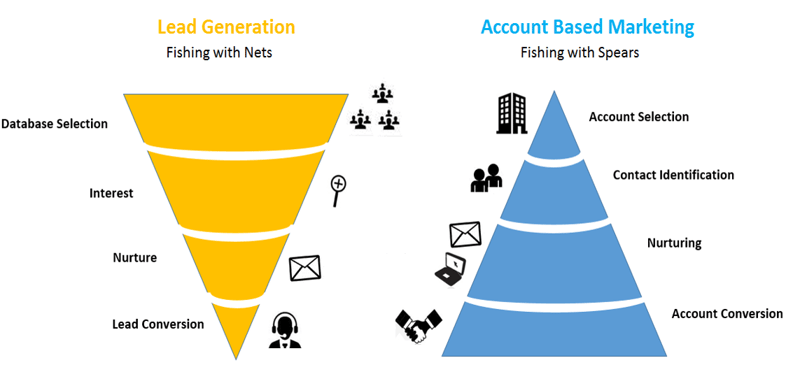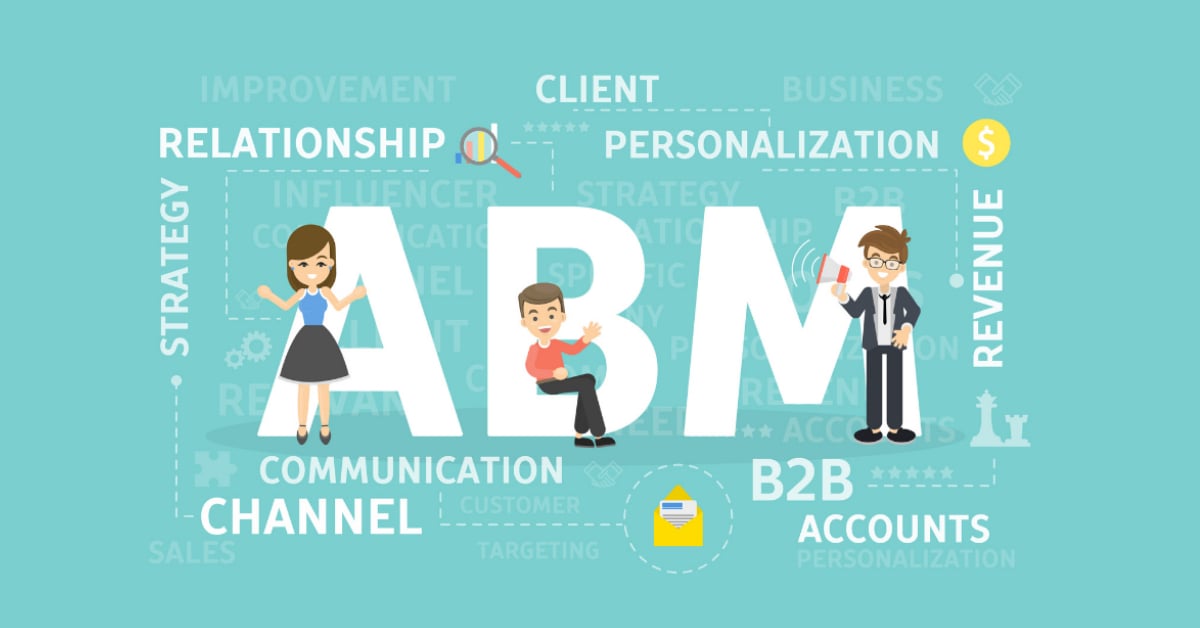If you haven’t heard of Account Based Marketing before, it might sound like some boring formal name for a more traditional type of marketing, or something to do with accounting.
What is Account Based Marketing?
Funnily enough, it’s actually the polar opposite. Account Based Marketing (ABM) is a focused growth strategy that sees Marketing and Sales collaborating to create personalised buying experiences for target accounts, and it’s pegged to be the next big thing.
“Account-based marketing (ABM) is a strategic approach to designing and executing highly-targeted, personalized marketing programs and initiatives to drive business growth and impact with specific, named accounts.” ITSMA (who coined the term)
By aligning your Marketing and Sales teams, your business will be geared up to engage and delight your highest value accounts much faster. ABM is a powerful combination of people, process and technology that has the potential to out-perform all your other demand generation.
One Account, Many People
Account Based Marketing treats your target account as its own market, which makes sense when you consider that most B2B deals involve multiple buyers - not just the decision-maker but also the end user, the tech-forward influencer, and the budget-conscious CFO.
Each character in this line-up has their own interests, pain points and hopes for improvement. So you need to tailor your marketing approach for each person to make sure your message makes an impact. When multiple people take part in larger business purchases, each will be considering their own motivations and pain points, each person is rewarded differently, and each will evaluate your offering based on a different perspective.
When your team has an understanding of how each individual fits into the bigger picture, they’ll also start to discover the relationships between each buyer - this will help to give context to any new person that comes into the decision making process, as well as giving more insight into engagement across the board and when it changes.
Account Based Marketing vs. Lead Generation
Account Based Marketing effectively flips the traditional lead generation model upside down.
 (Source)
(Source)
If traditional demand generation is fishing with a net, Account Based Marketing is fishing with a spear. Instead of waiting for leads to come to you and nurturing them through to conversion, you reach out to the big fish directly with highly relevant, personalised marketing messages.
ABM is a laser-focused approach and by directing your sales and marketing efforts on just the contacts you need to reach, you aren’t wasting your time and money trying to reach uninterested leads, which will in turn raise the quality of your data and the relevance of your messaging.
The Connection Between Account Based Marketing and Inbound Marketing
Even though ABM is highly-targeted, and inbound marketing is more foundational, these two methods work hand-in-hand seamlessly. Instead of ‘spraying and praying’ with outbound marketing, inbound allows you to organically provide audience with the information they want, when they want it. Inbound marketing becomes your strong foundation to build your ABM strategy on.
With this combined approached, you attract a broader group of prospects that you can then apply your ABM strategy to, and your inbound marketing content has double the value because it can be used for both ABM and inbound marketing. We love HubSpot’s ABM marketing software for making it easy to implement ABM and inbound strategies side-by-side.
Why is Account Based Marketing Pegged to be the Future?
It’s not rocket science to know that keeping all of your teams aligned is going to do good things for your business. What really works in ABM is the close integration of Marketing, Sales and Customer Service, to deliver consistent customer experiences.
Despite its name, Account Based Marketing is not exclusively a marketing function, and ABM works best in companies where all revenue-generating disciplines are closely aligned. Teams that work in isolation are the ones that miss opportunities, duplicate efforts, waste insights, drop the ball in clunky ‘handovers’ to Sales, and inhibit every important metric from close rates to deal velocity.
By bringing all your teams together and backing them with powerful software like HubSpot that enables them to do their best work, you can maximise your relevance among high-value accounts, streamline your sales cycle, and expand your business through account relationships. Nice!
To learn more about whether HubSpot will be the next best thing for your business, check out our free CRM comparison tool.




.jpg)
Comments